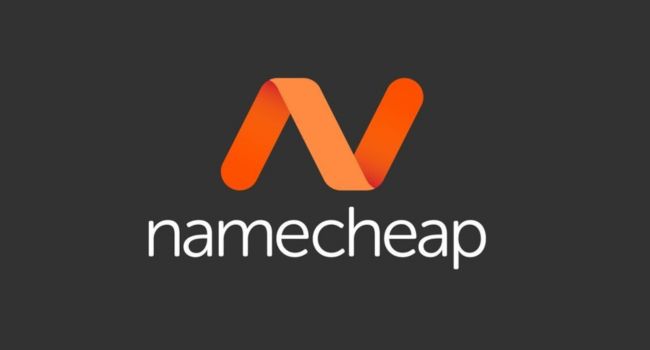
Last updated on December 7th, 2023 at 12:19 pm
Offer a decent package at its price point, especially when it comes to shared hosting.
In the realm of domain name registration, few names hold as much weight as Namecheap. Known for its competitive prices and dependable service, Namecheap has established itself as a prominent player in the domain registration industry.
While primarily renowned as a registrar, Namecheap also offers hosting services. However, despite its prominence in domain registration, its hosting services often go underappreciated due to the company’s name being strongly associated with domains.
Today, you’re in for a treat as I present a comprehensive review of Namecheap, covering both its hosting and registrar services. We’ll delve into how Namecheap fares as a host and whether it’s more than just a budget-friendly option for managing its extensive portfolio of 10 million domains.
The assessment is a bit nuanced, but we’ll navigate through it all. Without further delay, let’s dive into the world of Namecheap!
ADVANTAGES
Now, let’s explore the strengths of Namecheap as both a domain registrar and a hosting provider.
When it comes to both domain registration and hosting, Namecheap‘s most significant advantage is its affordability. While prices may differ based on the specific products, it’s evident that Namecheap consistently offers some of the most competitive rates for domain registration and hosting services.
Namecheap, as a hosting provider, may not be packed with an abundance of features and resources, but it still offers a commendable package at an affordable price, especially when it comes to shared hosting, catering to those seeking budget-friendly options. Namecheap strikes a fine balance between cost and resources.
One standout aspect of Namecheap is its user-friendliness. Both domain registration and hosting processes are seamless, featuring an intuitive and straightforward user interface that minimizes upsells.
Moreover, Namecheap‘s customer support is generally commendable. The representatives are responsive and helpful, and the on-site information is satisfactory. While not exceptional, there are few complaints to be made in this regard.
As a registrar, Namecheap exhibits strong security measures and reliability, further adding to its overall appeal.
Despite its strong points, Namecheap does have some downsides. While low prices are appealing, they don’t always guarantee top-notch quality across the board.
One major concern revolves around questionable uptime scores based on our measurements. These scores fall below the industry standard, which could diminish the attractiveness of Namecheap‘s hosting services.
Furthermore, when it comes to Namecheap‘s higher-end hosting products like VPS and dedicated hosting, the decent pricing may not be sufficient for customers seeking top-notch performance and reliability. Those opting for more robust hosting solutions typically prioritize quality above cost savings.
In essence, Namecheap isn’t necessarily bad, but it may carry some inherent risks. If you’re in need of a more robust and serious hosting solution, exploring companies that focus primarily on hosting services might be a wiser choice.
On the surface, the list of downsides may not appear extensive, but they could be significant enough to make Namecheap less appealing to certain potential customers. We’ve only begun to scratch the surface, so let’s delve deeper into the details to gain a comprehensive understanding.
NameCheap: Domain Registrar Pricing and Features:
Before delving into the other aspects, let’s begin with a review of Namecheap‘s features and pricing as a domain registrar, followed by its hosting offerings. Evaluating other factors will be more straightforward when assessed together.
As a registrar, Namecheap unquestionably stands strong. In summary, it offers competitive prices, a solid array of features, and provides a straightforward service, all contributing to its management of an impressive 10 million domains.
To elaborate, a standard .com domain on Namecheap typically costs $8.88 per year at the time of writing.
Namecheap offers domain registration prices that are already a few dollars below the industry average. While the renewal fees may be slightly higher, the difference is not significant, especially if you opt for a multi-year purchase from the outset.
In fact, Namecheap is an excellent choice for those planning to keep their domains for an extended period because the renewal prices remain consistently low across all domains.
A notable perk is that Namecheap includes a free year of WhoisGuard, which is typically a separate charge with other domain registrars. WhoisGuard is essential for most users as it safeguards their privacy by concealing their registration details from the public domain registry.
For bulk domain purchases, Namecheap remains a strong contender, offering a wide range of top-level domains (TLDs) at competitive prices. The platform’s user-friendly tools ensure that even bulk-buyers can manage their domains with ease.
However, while Namecheap‘s domain management apparatus features an app store, its offerings in this area are somewhat lackluster.
Namecheap‘s performance as a domain registrar is impressively solid without overwhelming you with unnecessary details. While there might not be an extensive array of tools, this is quite reasonable since the focus is on domain management, not website building. However, the available tools are highly effective, and their user-friendly nature makes them easy to grasp and utilize effectively.
Let’s talk about its hosting:
Now, let’s delve into Namecheap‘s hosting services. Remarkably, Namecheap offers a diverse range of hosting options, including shared, WordPress, reseller, VPS, and dedicated server hosting.
Considering its reputation for affordability, you might assume that shared hosting would be Namecheap‘s primary selling point, as budget-friendly hosting would naturally align with their strengths.
When it comes to shared hosting, Namecheap offers an exceptional starting price of $2.88 per month for month-to-month payments. This is already quite impressive considering that monthly plans typically come with a significant price increase. Namecheap‘s shared hosting stands out as one of the most affordable options available, on par with only a select few hosting companies.
Opting for an annual payment plan makes it even more cost-effective, particularly in the first year. While the price doubles in the second year (as is common), it still remains highly affordable. In fact, Namecheap‘s renewed shared hosting price is comparable to the discounted first-year prices offered by most major hosting providers.
Considering the pricing, is it worth it? Namecheap‘s shared hosting options provide a minimum of 20GB SSD-accelerated disk space, unmetered bandwidth, support for 3 websites, a site-builder, and a choice of US or UK data centers (with a slight increase in cost for UK data centers). Additionally, they include free domains, free WhoisGuard, and up to 50 Positive SSL certificates.
Higher-tier plans offer unlimited websites, an AutoBackup option, and additional SSD disk space. The backup frequency is decent, ranging from twice a week for the lower tiers to 6 times a day every week for the highest tier. Like other providers, Namecheap allows you to add a dedicated IP for an extra $2 per month and provides access to an app store with a good selection of free apps.
The only notable downside with the features is that the third-tier plan is limited to 50GB of pure SSD disk space. While this is still a substantial amount, it could be higher for a third-tier option.
Overall, Namecheap‘s shared hosting impresses with its feature set. Now, let’s explore other hosting options.
Moving on to WordPress hosting, it is also competitively priced. Although the monthly price is higher than the annual price, it remains at or below the market average for WordPress hosting.
Namecheap‘s WordPress hosting is powered by their cloud infrastructure, which promises significantly improved speed compared to using WordPress on a regular shared hosting account. While it may not boast an abundance of features, its pricing is reasonable and fair for what it offers.
Without a doubt, Namecheap‘s shared hosting stands out as their best offering, providing an excellent combination of features and resources at affordable prices. However, their other hosting options are not necessarily subpar; they simply fall into the category of being “not bad.”
Namecheap‘s WordPress hosting, for instance, comes at a low price point that makes it worth considering for individuals seeking cost-effective solutions. For small businesses operating a single site with moderate traffic expectations, both Namecheap‘s shared and WordPress plans can be viable and attractive choices.
On the other hand, if you are a business anticipating substantial traffic and requiring higher-quality service, you might approach Namecheap‘s offerings with more caution. While their prices remain affordable, investing in higher-quality hosting with other providers offering better specifications and resource allocations may be a more justifiable choice.
In summary, Namecheap’s hosting can be considered a hidden gem for individuals or small businesses that only require a limited number of sites. However, if you’re seeking a more advanced hosting solution, other options might be more suitable. On the domain front, Namecheap unquestionably stands out as a great choice.
NameCheap: Ease of Use
Both hosting and domain management require ease of use, but they differ in their specific requirements.
For domain management, the fundamental tasks are typically handled by the registrar, making it relatively straightforward to secure a name for your site. Adjusting settings and preferences as needed, ensuring proper linkage to your site, and taking care of other essentials are the primary tasks.
Even when dealing with bulk domain purchases or domain trading, registrars often provide tools to simplify these processes, making them user-friendly.
In the domain management aspect, Namecheap excels. Their user interface is exceptionally user-friendly, offering a simple dashboard along with a sidebar containing a few pages that allow for effortless domain and account management within the Namecheap platform.
In my opinion, ease of use becomes even more crucial when it comes to hosting. While hosting and domain registration share similarities in seeking the right resources for the right price, hosting involves more complexities due to various factors like site builders, WordPress integration, SSL certificates, email accounts, and other aspects that need management.
Managing a website’s hosting requires handling a wider range of tasks, making it a slightly different challenge altogether. However, Namecheap simplifies the process and ensures that managing hosting is as easy as managing domains. Their user interface for hosting closely resembles their domain management interface, providing a seamless experience.
One aspect that can be seen as both positive and negative is that Namecheap facilitates easy connection between your domain and hosting if you use them for both services. This ease of connection may lead to some upselling, which could be slightly bothersome, but it also means that coupling your domain and hosting with Namecheap is a straightforward process.
Once you start using Namecheap’s web hosting service, it becomes a user-friendly experience. Like their domain registrar, Namecheap‘s intuitive interface makes managing hosting a breeze. The inclusion of cPanel further streamlines the process, and their skins maintain a smooth and enjoyable user experience.
Notably, Namecheap‘s shared hosting packages also include a website builder, which is a common feature. However, Namecheap’s site builder stands out as particularly intuitive and efficient, making website creation a hassle-free task.
A notable aspect I appreciate about Namecheap is its relative transparency. While it may not display a massive banner on its landing page with the exact renewal price of your hosting package, the company maintains a mostly straightforward approach for its users.
This transparency is evident throughout various processes, including domain registration and the subsequent domain management phase. Additionally, when it comes to hosting, examining and modifying your account settings is a breeze, offering users a seamless experience.
NameCheap: Customer Support
One cannot, of course, always rely on a product being easy to use. Sometimes technical difficulties arise, or sometimes software is easy to use but you need to know how to do something unusual, make a change to your account, etc.
Customer support is therefore essential—does Namecheap’s affordability come at the cost of good customer support? Let’s see.
Note: keep in mind that Namecheap’s customer support resources are shared between the domain and the hosting side.
First off, you have a few options for contacting representatives directly. You can do this via a ticket or live chat—no phone support currently, unfortunately. However, the ticketing and live chat have worked out pretty well for me in the past.
I find Namecheap‘s knowledge base quite impressive. It is well-organized, offering abundant content, and is visually appealing, making it easy to navigate and find relevant information.
Additionally, Namecheap provides a resource center, which offers less technical support focused on practical applications of their technology. This resource center covers useful topics such as website building, effective SEO practices, and more. While such resource centers are common, it is commendable to see Namecheap maintaining a comprehensive one.
Regarding customer support, while it may not be overly extensive, Namecheap‘s support is still robust and reliable. Their customer representatives are responsive and helpful based on my experience. Moreover, the on-site information and resources are readily accessible and valuable. Although Namecheap‘s support may not be exhaustive, it goes beyond basic essentials, providing customers with helpful resources.
Security and Reliability
Security is of utmost importance for both domain registration and hosting services, and Namecheap does a decent job in handling security on both fronts. However, some aspects remain unclear due to the company’s primary focus on domain registration rather than hosting.
While Namecheap‘s popularity provides a level of trustworthiness for domain registration, the situation becomes less evident for hosting. The extent to which Namecheap allocates its resources to hosting security and reliability remains uncertain.
Nonetheless, Namecheap maintains commendable security standards throughout the company and offers valuable security tools/features for users. These include the option for two-factor authentication (2FA) for user accounts and cPanel, as well as free SSL certificates with some hosting packages for the first year. Additionally, Domain Lock security and free WhoisGuard for a year are included with every domain registration.
For hosting, Namecheap employs DDoS protection for all its servers and has a responsive staff prepared to address DDoS attacks. They utilize the latest servers, implement good RAID protection, regularly test server performance, and ensure full redundancy at all network levels.
Despite having robust security measures, it’s essential to note that even with excellent security, flawless website uptime is not guaranteed.





